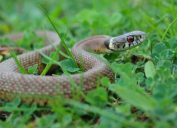This Is the No. 1 Sign There's a Snake in Your House, Experts Say
Pay attention to this telltale sign you've got a snake lurking around your home.
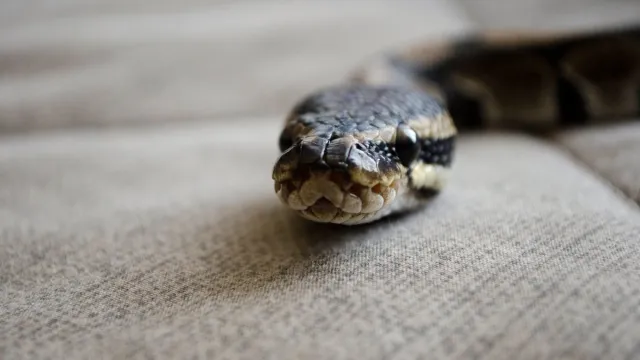
Coming across a snake in the wild sends people running for the hills, but it's even worse when a snake has found its way into your space. When searching for food or for shelter, snakes can and will slither their way into your house—and they're even more likely to do so when summer turns to fall. Despite being sneaky, however, this creepy creature tends to leave behind some obvious signs that it has taken up residence in your space. To avoid stumbling on a snake by surprise, read on to learn how you can tell there's one hiding in your house.
RELATED: This Is When You're Most Likely to Encounter a Snake, Experts Say.
If you hear mysterious noises in your house, you could have a snake problem.
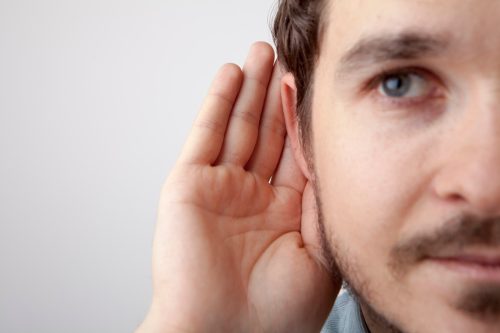
If there's a snake in your house, you may end up hearing it before you actually see it. Jack Miller, a pest control expert and founder of How I Get Rid Of, says that hearing mysterious noises in small spaces is a common sign of a snake's presence, especially "if it's a sound that you're not familiar with and it doesn't sound like your run-of-the-mill household pests like rats."
Michael Dean, a pest expert and co-founder of landscaping website Pool Research, says that if you're dealing with a snake, these strange noises are likely to come from enclosed or dark spaces, such as your walls, crawlspace, flooring, or attic. Snakes are likely to make a crinkling paper noise or a slow-moving, scratching noise similar to that of sandpaper, per the Wildlife Company, an animal control company.
"This type of noise is generally made by snakes as they crawl over the paper side of batten type insulation. Their scales will scratch against the paper as they crawl across," the Wildlife Company says. "This noise will cross a ceiling very slowly if it is made by a snake. If you hear this, crawlspaces and attics need to be inspected for snakes."
RELATED: Leaving This in Your Garage Is Bringing Snakes to Your Home, Experts Warn.
You will also want to check your house for any physical signs of snakes.
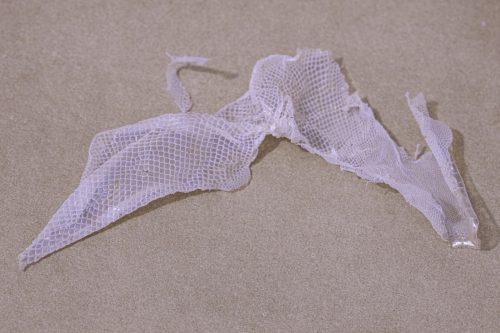
To confirm that you're dealing with a snake, you can also look for the physical signs of one. These include left-behind snake skins or snake droppings. According to Jonathan Gleave, an exterminator with Hawx Pest Control, these creatures shed their skins several times per year, which means you're likely to come across the remnants of their shedding.
"The skin will appear in a hollow tube shape in one or a couple of large pieces. It will have a recognizable scale pattern," he says. As for snake droppings, Maureen K. Murithi, DVM, a veterinarian working with Hepper, says they often look similar to bird droppings, but usually also contain leftover bones or hair from eaten prey.
There are ways you can try to keep snakes out of your house.
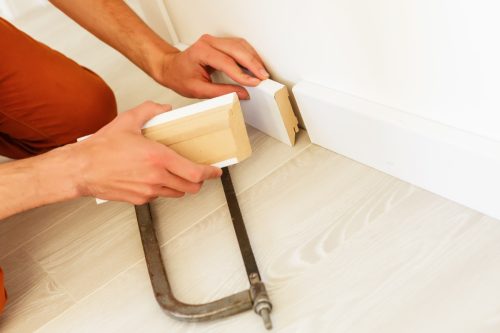
Snakes find their way into people's homes through various routes, but there are ways you can make yours a less appealing choice. Nancy Troyano, PhD, a board-certified entomologist from Ehrlich Pest Control, says to snake-proof your home, you should ensure that there are no gaps around outside doors, window frames, or baseboards. You should also close up any holes, cracks, or crevices, especially near the crawlspace. "Drainage areas are a perfect entry point for snakes," she says. "Cover gutters and drain pipes with fine gauge mesh, and seal all holes where wiring, plumbing, or gas enters the home."
Both Troyano and Murithi say you should also keep the grass around your house cut down, as this is a prime hiding spot for snakes. "Additionally, snakes prey on rodents for food. Disposing trash and clearing any debris that may be laying around the home aimlessly helps prevent attracting rodents into your home, which may deter the snakes from crawling into your home in search of food," Murithi adds.
RELATED: For more guidance on pests delivered straight to your inbox, sign up for our daily newsletter.
You should call pest control if you find or suspect you have a snake.
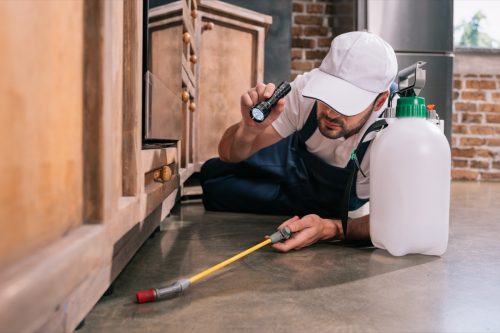
Karen Riley, an animal expert and founder of IHaveDogs, says that if you do come across a snake in your home, you can try opening a surrounding window or door to provide it with an escape route. But you should never try to grab it or poke it yourself, as a snake can quickly react and severely harm you if venomous. No matter what, Murithi says you should call a pest control company if you notice or suspect a snake is in your home.
"It is important to notify pest control companies, as they are more knowledgeable on how to fumigate and eradicate them," she explains. "In the meantime, one can inspect their home and [look] for any holes on the ground or hiding places that may be suspect and notify the pest control company once they arrive."
RELATED: If You Smell This at Home, You May Have a Venomous Snake, Experts Say.

